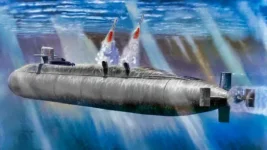- Views: 1K
- Replies: 13

Abdul Basit, a former Pakistani diplomat who served as High Commissioner to India, has urged Pakistan to acquire nuclear-powered submarines to counter India's expanding nuclear-capable naval fleet.
In an interview with ABN News, Basit stressed the strategic imperative of such an acquisition, particularly in light of India's recent advancements, including the successful test of the K-4 submarine-launched ballistic missile (SLBM) from the nuclear-powered submarine INS Arihant.
Basit argued that achieving parity with India's naval and nuclear capabilities is crucial, and that Pakistan's current submarine fleet lacks the necessary deterrence to counterbalance India's growing strength. He believes that the induction of nuclear-powered submarines would not only bolster Pakistan's naval posture but also enhance its second-strike capability, a critical component of strategic stability in the region.
He acknowledged Pakistan's ongoing efforts to integrate nuclear weapons onto its conventional submarines, a different approach than India's dedicated nuclear-powered platforms. This, he suggests, demonstrates Pakistan's commitment to strengthening its maritime deterrent.
India's Arihant-class submarines, equipped with SLBMs like the K-4, have significantly enhanced its power projection capabilities and second-strike options. This development has raised concerns in Pakistan and fueled calls for similar advancements. However, acquiring nuclear-powered submarines presents significant technological, financial, and diplomatic hurdles for Pakistan.
Basit's comments reflect a broader sentiment within Pakistan's defence establishment, which views India's military modernization as a pressing threat requiring countermeasures.
However, experts have questioned the feasibility of Pakistan achieving nuclear-powered submarine capabilities in the near future, given the substantial resources and expertise required for such an undertaking.





